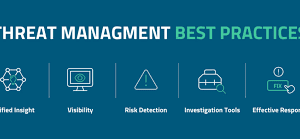The “Great Resignation” might not be making headlines any more, but the battle for talent rages on. In the UK and EU, companies are grappling with a tight labour market, where skilled professionals have more choices than ever before. The cost of employee turnover is steep – from recruitment and training expenses to the loss of institutional knowledge and productivity.
So, what’s the secret to retaining your valuable employees? It might be simpler than you think. Salary benchmarking, a once-overlooked practice, is emerging as a powerful tool in the fight against employee churn. Let’s explore how this data-driven approach can transform your retention strategy and help you build a loyal, engaged workforce.
The Link Between Competitive Pay and Employee Satisfaction: More Than Just Money
A competitive salary is a fundamental pillar of employee satisfaction. While factors like company culture, work-life balance, and career development opportunities play a significant role, the reality is that money talks.
When employees feel they are being fairly compensated for their skills, experience, and contributions, it sends a powerful message: their work is valued, their efforts are recognised, and they are an integral part of the company’s success. This sense of worth and appreciation translates into higher job satisfaction, increased engagement, and a stronger commitment to the organisation’s goals.
It’s not just about the figures on their payslips; it’s about the emotional and psychological impact of feeling adequately rewarded. A competitive salary not only meets employees’ financial needs but also reinforces their sense of self-worth and professional value.
This, in turn, fosters a positive work environment where employees are motivated to go above and beyond, contributing to higher productivity and better business outcomes.
Conversely, when employees feel they are underpaid compared to their peers in the industry, it can trigger a cascade of negative emotions. Resentment, frustration, and disengagement can quickly set in, leading to decreased productivity, lower morale, and ultimately, higher turnover rates. The financial implications of this can be substantial, as the cost of replacing an employee can far exceed the cost of offering a competitive salary.
Furthermore, in today’s hyper-connected world, salary information is more accessible than ever before. Employees can easily compare their earnings to industry averages and see what their skills and experience are worth in the open market. This transparency puts pressure on companies to ensure their compensation packages are competitive and equitable.
In this context, salary benchmarking becomes a critical tool for companies seeking to attract and retain top talent. By understanding the market rates for different roles and skillsets, companies can ensure that their salaries are in line with industry standards, reducing the risk of losing valuable employees to competitors offering higher pay.
Salary Benchmarking: Your Reality Check
In essence, salary benchmarking is the process of comparing your company’s salaries to market rates for similar roles. This provides a reality check, allowing you to see where your compensation packages stand in relation to your competitors.
But salary benchmarking is more than just comparing numbers. It’s about understanding the broader context of your compensation strategy. What benefits and perks are your competitors offering? What are the salary trends in your industry and region? How do your compensation packages stack up against companies with similar cultures and values?
Armed with this information, you can make informed decisions about salary adjustments, bonuses, and other compensation-related initiatives. You can identify potential pay disparities within your own workforce and take proactive steps to address them before they lead to turnover.
Proactive Retention: Staying Ahead of the Curve
Salary benchmarking isn’t just about reacting to employee dissatisfaction. It’s a proactive tool that allows you to stay ahead of the curve and anticipate potential retention issues.
By regularly reviewing market data, you can identify emerging trends and adjust your compensation packages accordingly. For example, if you notice that salaries for certain roles are increasing rapidly in your industry, you can take steps to ensure that your compensation remains competitive. This could involve offering higher starting salaries, implementing more frequent salary reviews, or providing performance-based bonuses.
Empowering Your HR Team with Data: The Key to Strategic Compensation Management
Salary benchmarking might seem like a complex undertaking, a labyrinth of numbers and trends that only the most seasoned HR professionals can navigate. But this couldn’t be further from the truth.
In today’s data-driven world, salary benchmarking is no longer a daunting task but a strategic opportunity for HR teams to gain valuable insights into the market and make informed decisions about their compensation strategies.
The traditional approach to salary benchmarking often involved laborious manual processes, endless spreadsheets, and a reliance on outdated information. This not only consumed valuable time and resources but also hindered HR teams from focusing on more strategic initiatives.
However, with the advent of advanced compensation management software, like that offered by Figures.hr, the landscape has shifted dramatically.
These platforms offer a comprehensive suite of tools that streamline the entire benchmarking process, making it more accessible, efficient, and insightful than ever before. HR teams can now access real-time market data, conduct comprehensive salary surveys, and generate customizable reports with just a few clicks.
This empowers them to:
- Stay Ahead of the Curve: Compensation management software provides up-to-the-minute insights into salary trends, ensuring that your compensation packages remain competitive and attractive to top talent.
- Identify Pay Gaps: By analysing salary data, you can quickly identify any potential disparities in pay based on gender, ethnicity, or other factors, allowing you to proactively address any issues and ensure fairness and equity within your organisation.
- Make Data-Driven Decisions: With a wealth of data at your fingertips, you can make informed decisions about salary adjustments, bonuses, and other compensation-related initiatives. This ensures that your compensation strategy is aligned with your business goals and budget.
- Streamline Communication: Compensation management software can help you communicate your compensation philosophy and decisions more effectively to employees, fostering transparency and trust.
Harnessing the Power of Data
By embracing compensation management software, HR teams can transform salary benchmarking from a reactive chore into a proactive strategy. Real-time data allows for agile decision-making, enabling you to quickly adapt to changing market conditions and stay ahead of your competitors.
Moreover, these platforms empower HR teams to become strategic partners in the business, providing valuable insights that inform not only compensation decisions but also broader talent management strategies.
By understanding the market value of different roles, you can make more informed hiring decisions, allocate resources more effectively, and develop career paths that retain your top performers.
Remember, salary benchmarking is an ongoing process. The market is constantly evolving, and your compensation strategy needs to evolve with it. By regularly reviewing and updating your data, you can ensure that your company remains a top destination for talent in your industry.
The Future of Compensation Management
The future of compensation management lies in data-driven decision-making and the use of advanced tools like compensation management software. By embracing these technologies, HR teams can transform their approach to compensation, ensuring that their companies remain competitive, their employees are engaged and motivated, and their businesses thrive in the ever-changing world of work.
The time to embrace data-driven compensation management is now. Don’t let outdated processes and a lack of insights hold your company back.
Read More From Techbullion And Businesnewswire.com



































